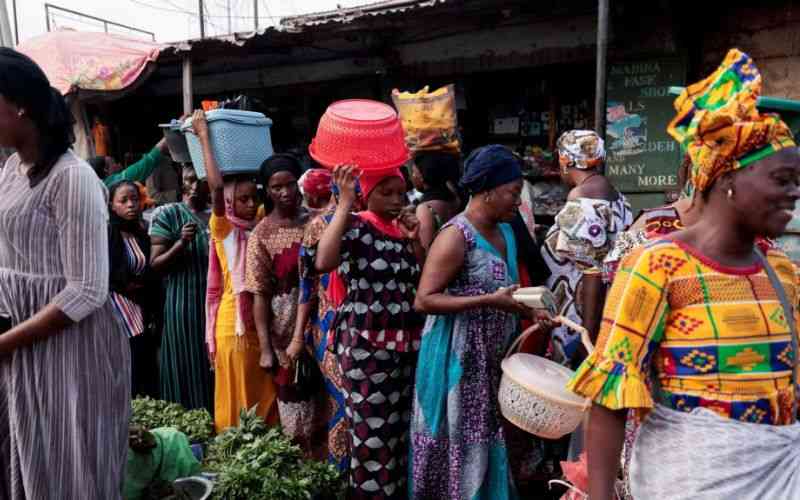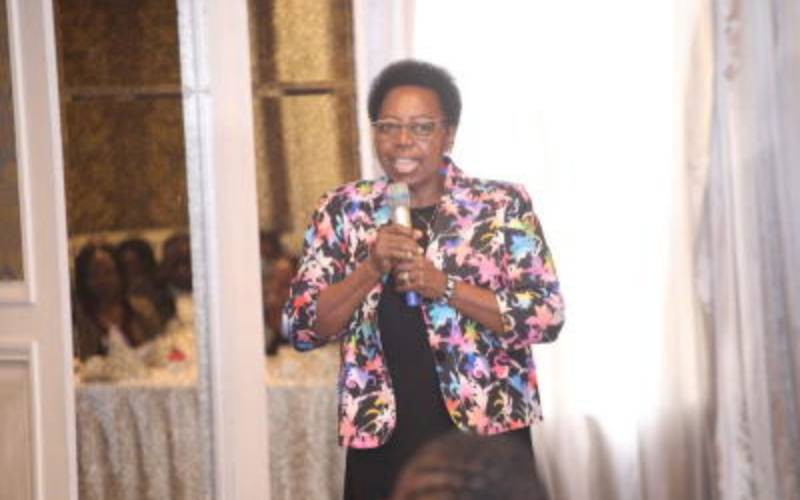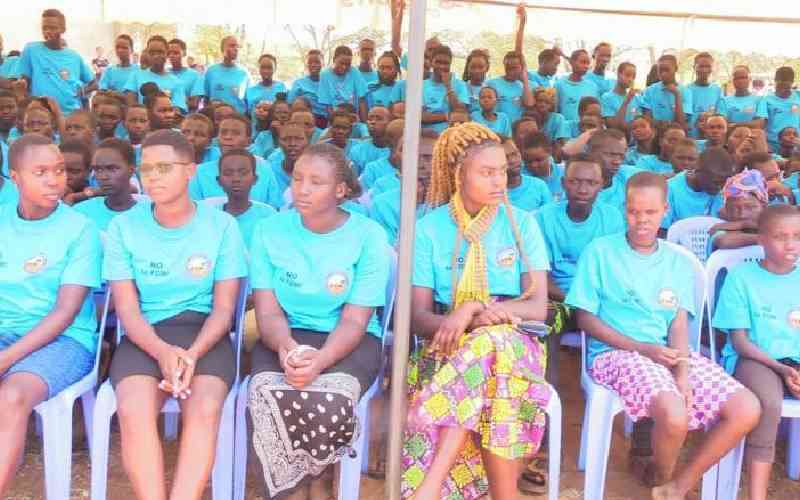NAIROBI, KENYA: United Nations Secretary General Ban Ki-moon has launched a landmark global media campaign against Female Genital Mutilation (FGM) in Nairobi in a fresh bid to eliminate the retrogressive practice.
Speaking Thursday at the UN Complex in Gigiri, Mr Ban said the campaign recognises the critical role of media in advocating the end of FGM. "Change can happen through sustained media attention on the damaging public health consequences of FGM as well as on the abuse of the rights of hundreds of thousands of women and girls around the world," the UN chief said.
He added: "I look forward to engaging with media outlets across Africa and beyond on how to report on this issue better and draw attention to its devastating impacts. The mutilation of girls and women must stop in this generation."
Ban announced the launch of two initiatives that would help support media outlets in Kenya, and across the continent.
A new, joint UN Population Fund (UNFPA)-Guardian International FGM Reporting Award, would be granted annually to an African reporter who has demonstrated innovation and commitment in covering FGM.
The competition winner – who would have submitted reportage on FGM – would spend two months training and working at The Guardian's head offices in London. "I'd like to thank The Guardian for your strong initiative and support," he said.
In Kenya, five reporting grants under the same award would be awarded to a number of the country's leading media houses to help support their reporting on FGM. "Not only do we hope to support the Kenyan media in bringing the issue of FGM to national and global attention, but we also hope to create a media model that can be reproduced in other countries," he said.
Media Owners Association Chairman and CEO of the Standard Group Sam Shollei said Kenyan media would scale-up anti-FGM activities in order to positively influence social values and bring an end to the vice and empower women and girls.
FOUND COURAGE
"Although the anti-FGM laws and policies are there, FGM continues to be practised in some parts of Kenya. The media will therefore play a huge role in changing social norms that support the practice which is degrading to girls and women," he said.
Shollei said the media would strive to highlight the fact that FGM violates women and girls' rights as well as posing a huge health risk.
UNFPA Executive Director Babatunde Osotimehin called on the media to tackle FGM as part of their larger efforts to empower women and girls.
Devolution Cabinet Secretary Anne Waiguru said the Government is committed to ending the vice. She cited the establishment of the Anti-FGM Board and a policy developed to implement the Prohibition of FGM 2011 Act.
Maggie O'Kane of The Guardian newspaper said the global anti-FGM campaigns are aimed at building on the successes of similar campaigns in the UK, US and The Gambia, driven by the media. She said in the UK, the newspaper has been at the forefront in tackling FGM where over 20,000 girls are at risk.
Ban celebrated Nancy Tomee, a Pokot girl in the country who found the courage to say no to FGM when she was 13. Tomee is said to have resisted the practice hence changing her life.
Stay informed. Subscribe to our newsletter
 The Standard Group Plc is a
multi-media organization with investments in media platforms spanning newspaper
print operations, television, radio broadcasting, digital and online services. The
Standard Group is recognized as a leading multi-media house in Kenya with a key
influence in matters of national and international interest.
The Standard Group Plc is a
multi-media organization with investments in media platforms spanning newspaper
print operations, television, radio broadcasting, digital and online services. The
Standard Group is recognized as a leading multi-media house in Kenya with a key
influence in matters of national and international interest.
 The Standard Group Plc is a
multi-media organization with investments in media platforms spanning newspaper
print operations, television, radio broadcasting, digital and online services. The
Standard Group is recognized as a leading multi-media house in Kenya with a key
influence in matters of national and international interest.
The Standard Group Plc is a
multi-media organization with investments in media platforms spanning newspaper
print operations, television, radio broadcasting, digital and online services. The
Standard Group is recognized as a leading multi-media house in Kenya with a key
influence in matters of national and international interest.









